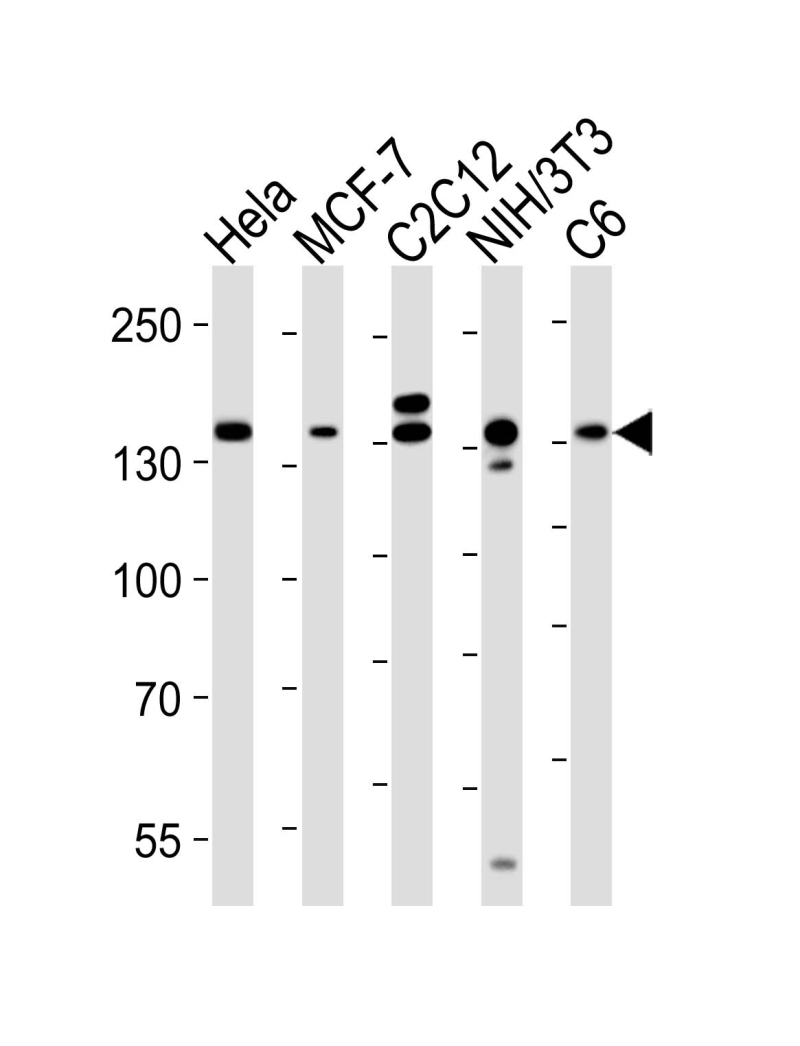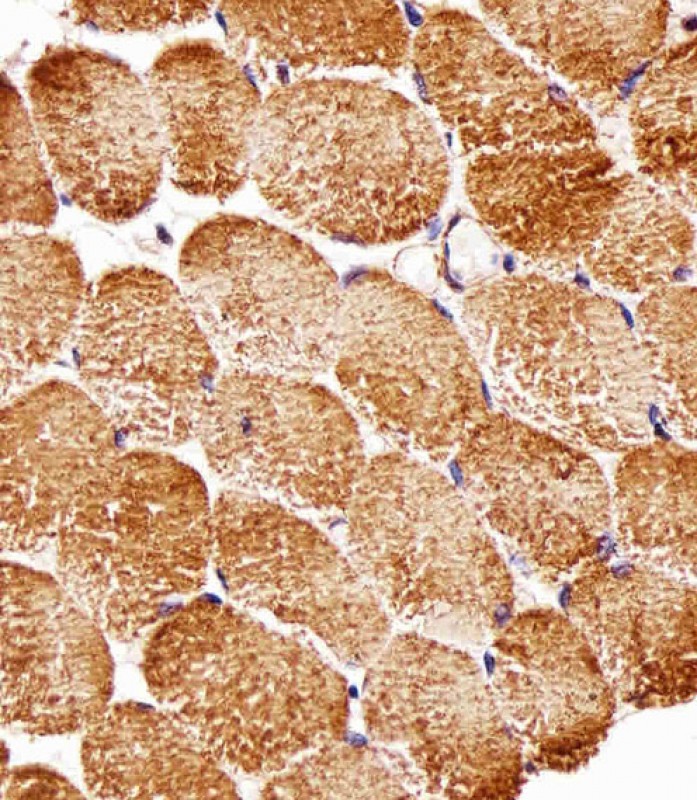

| WB | 1/500-1/1000 | Human,Mouse,Rat |
| IF | 咨询技术 | Human,Mouse,Rat |
| IHC | 1/100-1/500 | Human,Mouse,Rat |
| ICC | 技术咨询 | Human,Mouse,Rat |
| FCM | 咨询技术 | Human,Mouse,Rat |
| Elisa | 咨询技术 | Human,Mouse,Rat |
| Aliases | Regulatory-associated protein of mTOR, Raptor, p150 target of rapamycin (TOR)-scaffold protein, RPTOR, KIAA1303, RAPTOR |
| Entrez GeneID | 57521 |
| WB Predicted band size | 149kDa |
| Host/Isotype | Mouse IgG1 |
| Antibody Type | Primary antibody |
| Storage | Store at 4°C short term. Aliquot and store at -20°C long term. Avoid freeze/thaw cycles. |
| Species Reactivity | Human, Mouse, Rat |
| Immunogen | This RPTOR antibody is generated from a mouse immunized with recombinant protein. |
+ +
以下是关于RPTOR抗体的3篇参考文献,简要概括内容:
1. **文献名称**: *mTORC1 signaling and metabolic control: the expanding role of RPTOR*
**作者**: Kim DH, Sabatini DM
**摘要**: 本文探讨RPTOR在mTORC1复合物中的核心作用,阐述其通过调控营养/能量感应影响细胞生长的机制。研究中利用RPTOR抗体进行免疫共沉淀实验,验证其与mTOR的相互作用。
2. **文献名称**: *RPTOR deficiency in macrophages protects against atherosclerosis*
**作者**: Wei X, et al.
**摘要**: 研究通过RPTOR抗体检测巨噬细胞中RPTOR蛋白水平,发现RPTOR缺失可减少炎症反应和动脉粥样硬化斑块形成,提示其作为治疗靶点的潜力。
3. **文献名称**: *Antibody-based profiling of mTORC1 subunit expression in human cancers*
**作者**: Chen J, et al.
**摘要**: 使用特异性RPTOR抗体分析多种癌症组织样本,发现RPTOR在乳腺癌及结直肠癌中高表达,并与mTORC1通路活性及患者预后显著相关。
*注:以上文献为示例,实际引用时需核对真实存在的论文标题及作者信息。*
The RPTOR (Regulatory Associated Protein of mTOR) antibody is a crucial tool for studying the mechanistic target of rapamycin complex 1 (mTORC1) signaling pathway. RPTOR, a core component of mTORC1. acts as a scaffold protein that recruits substrates and regulates mTOR's kinase activity in response to nutrient availability, growth factors, and cellular stress. It plays a pivotal role in controlling cell growth, proliferation, autophagy, and metabolism by integrating upstream signals like insulin, amino acids, and energy status.
RPTOR antibodies are widely used to detect and quantify RPTOR protein expression, assess mTORC1 assembly, and investigate pathway dysregulation in diseases such as cancer, diabetes, and neurodegenerative disorders. They enable techniques like Western blotting, immunoprecipitation, immunofluorescence, and immunohistochemistry, aiding in the exploration of mTORC1 localization, interaction partners, and activation mechanisms.
Given the therapeutic relevance of mTORC1 in oncology and metabolic diseases, RPTOR antibodies are essential for preclinical research, drug development, and biomarker studies. Specificity and validation (e.g., knockout controls) are critical, as cross-reactivity with homologous proteins (e.g., RPTORB) or nonspecific binding can compromise data accuracy. Commercial RPTOR antibodies are typically raised against conserved epitopes, ensuring cross-species reactivity in human, mouse, and rat models. Ongoing research continues to refine antibody performance to address challenges in detecting post-translational modifications or isoform-specific variants of RPTOR.
×